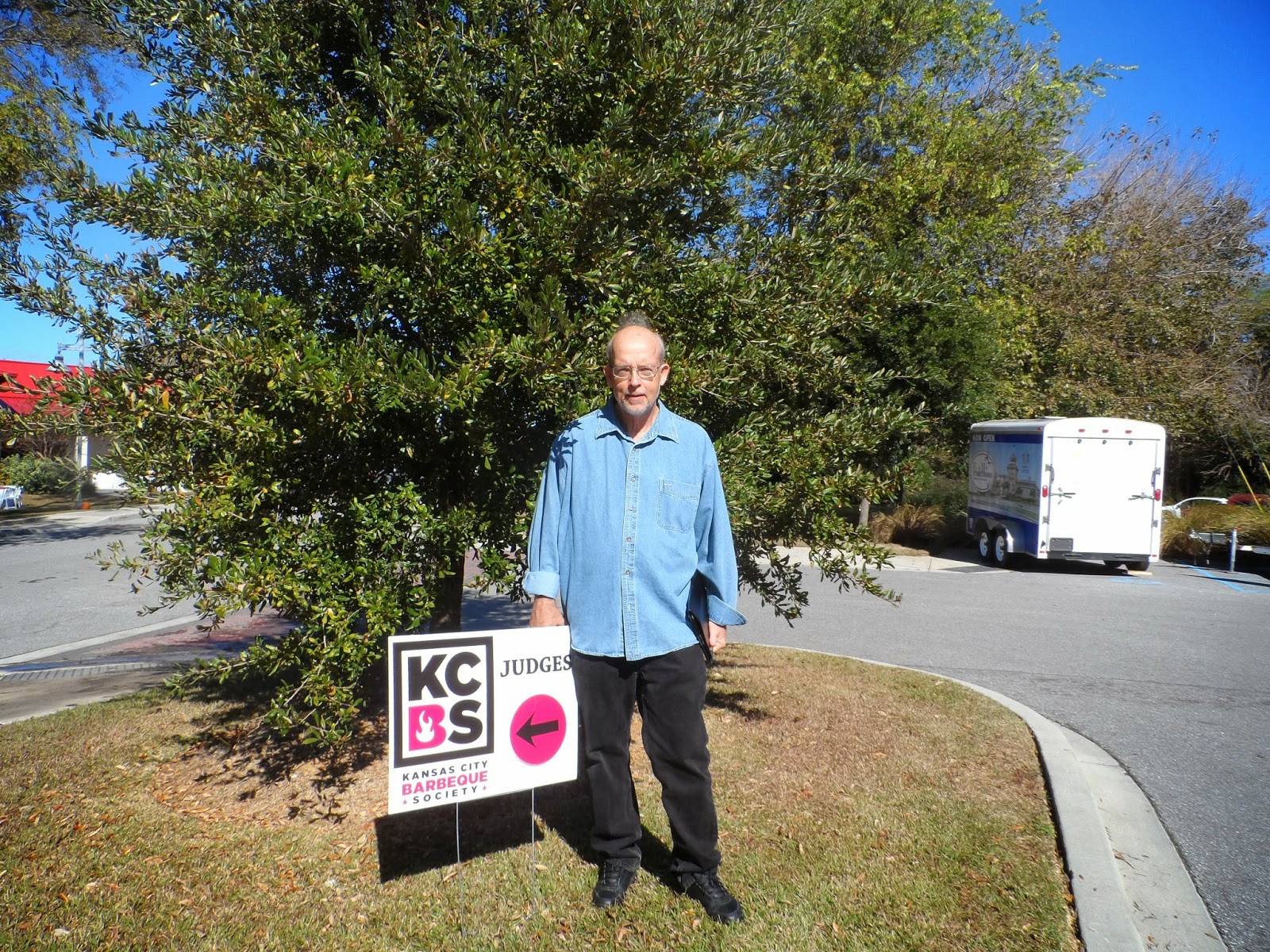How long does it take to be selected as a judge for an event? After I had completed training and was certified as a judge by the
Kansas City Barbecue Society, I was ready to judge. However, I was naïve to think that all I had to do was to select an event to attend, submit my application to judge, and wait for an acceptance notification.
 |
| A trailer brought in for the first event that I judged, is all that is needed as a music stage. |
Within days of being certified, I sent requests to judge at five events in the Carolinas that I thought would quickly develop my experience level so that I would not be a “novice” judge for too long. However, the excitement of being certified soon turned to disappointment with the notices that I received. I was being waitlisted because all judges needed had been selected or applications for judges were no longer being considered.
 |
Cooking teams, such as this one from Waxhaw, NC, at the first event where I was a judge,
can plan far in advance for which events they compete in. |
Then I realized that judges submit applications well in advance of an event and many judges who enjoy being at the same contest year after year and submit their applications soon after the event ends for the next year. In addition, because the number of judges is limited by the number of cooking teams that are competing, some contest organizers wait until about two months before an event to notify judges of their selection.
 |
| Music and food drew a large crowd at my first event. |
Finally, one of my five requests bought positive news. I was selected to be a judge at a contest in
Fort Mill, SC. An event that had been known as Anne Springs Close Greenway BBQ & Bluegrass Festival was being renamed as
Fiddle-N-Pig Shindig and expanded to include competition sanctioned by KCBS. Only later did I learn that I was able to judge because this event was still seeking judges because this year was its inaugural sanctioning by KCBS, although the festival had been held in previous years.
 |
| Teams such as this one began setting up early for the cookoff. |
The excitement of being a judge at my first event built over the weeks before the date of the festival arrived. Being at an event in Fort Mill would give me time to explore Charlotte, NC, which is nearby, and a few small towns and historic areas in upper South Carolina. The festival was held at the
Annie Springs Close Greenway, a 2,100-acre nature preserve and recreation complex that offers equestrian, hiking, boating, swimming, camping, fishing, and walking activities.
 |
| Meat for the cooking team is ready the day before for the cooking teams. |
The location was perfect for a barbecue and bluegrass festival. An entry fee permitted everyone to sample barbecue and vote in a people’s choice category. Musical ensembles played on a portable stage in front of a crowd that sat on a slope that was mostly shaded when they were not walking among the cooking teams. As the music played, teams turned in their entries at the historic
Dairy Barn, built in 1947, and the judges scored the entries on the second floor of the barn.
 |
| Judges beginning setting up before the first entries are turned in |
Fiddle-N-Pig Shindig was a great opportunity. I got to practice the training that I had received and taste excellent barbecue. This first event motivated me to seek other contests and continue my journey as a
certified KCBS judge.
 |
| Trophies at the Shindig await the winners. |
 Imagine planning a party. What setting would you want? When a barbecue competition was planned in South Carolina, the organizers took advantage of the spacious scenery of Lookout Pavilion that is part of the Charleston Harbor Resort and Marina, a fashionable property that proclaims itself a “waterfront sanctuary.” Charleston, “known as the place where history lives,” is a great venue for a barbecue throwdown.
Imagine planning a party. What setting would you want? When a barbecue competition was planned in South Carolina, the organizers took advantage of the spacious scenery of Lookout Pavilion that is part of the Charleston Harbor Resort and Marina, a fashionable property that proclaims itself a “waterfront sanctuary.” Charleston, “known as the place where history lives,” is a great venue for a barbecue throwdown.



















